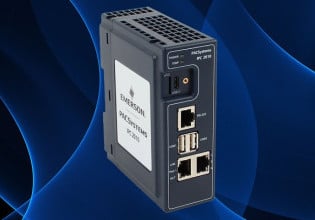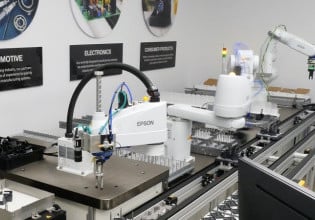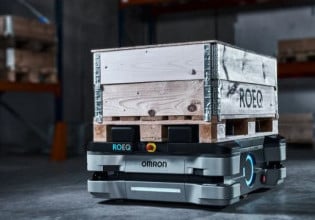M
Hello,
I have been involved in a project which uses Modbus TCP to distribute data between a Compact PLC (Master) on its own network, a Momentum base with ethernet top hat adapter on its own network and a Quantum PLC/Citect machine on their own network. These three seperate networks are linked via 3 wireless units, 1 being the master unit (compact PLC network) and the other two being client bridges (linking the Momentum unit and PLC/Citect). This works fine except even though the signal strength is excellent at all times when I use my "ethereal" packet sniffer there are a lot of lost Modbus TCP packets/Retransmits/Packet queues out of order on the wireless network, which causes #COM on the Citect and triggers watch dog type alarms between the two PLCs.
I have tried the following:
Multiplex MSTRs so that they don't cause ethernet conflicts.
Slowed down all poll rates on the three networks so thats the traffic is reduced.
Slowed down the wireless links to 5.5 mbs (worth a try).
When I plug into the Compact PLC network directly (with my laptop)and run Concept/Citect, the comms are fine with no lost packets at all.
There seems to be an issue when the packets are converted to wireless.
Is this a common problem with Modbus? Is there a special wireless router needed to do this?
Any help on this subject would be greatly appreciated.
Thanks guys.
I have been involved in a project which uses Modbus TCP to distribute data between a Compact PLC (Master) on its own network, a Momentum base with ethernet top hat adapter on its own network and a Quantum PLC/Citect machine on their own network. These three seperate networks are linked via 3 wireless units, 1 being the master unit (compact PLC network) and the other two being client bridges (linking the Momentum unit and PLC/Citect). This works fine except even though the signal strength is excellent at all times when I use my "ethereal" packet sniffer there are a lot of lost Modbus TCP packets/Retransmits/Packet queues out of order on the wireless network, which causes #COM on the Citect and triggers watch dog type alarms between the two PLCs.
I have tried the following:
Multiplex MSTRs so that they don't cause ethernet conflicts.
Slowed down all poll rates on the three networks so thats the traffic is reduced.
Slowed down the wireless links to 5.5 mbs (worth a try).
When I plug into the Compact PLC network directly (with my laptop)and run Concept/Citect, the comms are fine with no lost packets at all.
There seems to be an issue when the packets are converted to wireless.
Is this a common problem with Modbus? Is there a special wireless router needed to do this?
Any help on this subject would be greatly appreciated.
Thanks guys.






